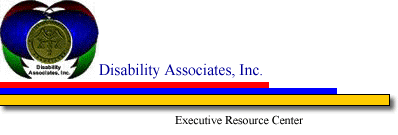
| Ask a Question | All Categories | Products |
Operations List of Categories
Page 1 Page 2 Page 3 Page 4 Page 5
- I discovered my client was lying about his allegations. What should I do?
-
I've sent my client's application to the District Office. Is there anything else I should do?
-
I have one week before
my client's 60 day appeal period ends. What should I do?
- What is
Social Security's definition of
a disability?
- How does SSA's definition of disability related to the business of disability advocacy?
- I discovered my client was lying about his allegations. What should I do?
If you discover that a claimant has lied or is attempting to cheat the system, you should unilaterally dismiss the case. Be sure to bill the claimant for any work already performed. Notify Social Security in writing that you are exiting the case and the reason why.
To top
-
I've sent my client's application to the District Office.
Is there anything else I should do?
Yes. Make sure that you have a copy of all materials sent to the Social Security District Office in case Social Security loses the materials. Send the materials by certified mail. Check with the DO in a week or so to make sure that the materials have been received.
To top
-
I have one week before
my client's 60 day appeal
request period ends. What should I do?
Take these steps:1. Interview the client carefully.
2. Assess the case.
3. Get copies of case documentation from the claimant is possible.
4. Use Social Security Form 1696, fee petition, fee contract and recon papers signed by claimant.
5. Contact Social Security to see where the case current resides.
6. Send a certified letter with appropriate materials requesting appeal.
In this circumstance, you're in a race to the 60 day appeal deadline. The easiest thing to do would be to send Social Security a certified letter with a signed appeal request form.
To top
- What is SSA's definition of
a disability?
The inability to engage in substantial gainful activity (SGA) by reason of any medically determinable physical or mental impairment that can be expected to result in death or to last for a continuous period of not less than 12 months. (Special rules apply for workers aged 55 or older whose disability is based on blindness. The 12-month requirement does not apply to SSI beneficiaries who are blind.) Individuals are considered to be disabled only if their physical or mental impairment(s) are of such severity that they are not only unable to do their previous work but cannotóbecause of their age, education, or work experienceóengage in any other kind of substantial gainful activity that exists in the national economy, regardless of whether such work exists in the immediate area in which they live, or whether a specific job vacancy exists for them, or whether they would be hired if they applied for work. The SGA criterion does not apply to children under age 18 in the Supplemental Security Income program. The standard for them is a medically determinable physical or mental impairment that results in marked and severe functional limitations.
To top
- How does SSA's definition of disability relate to the business of disability advocacy?
In the Sequential Analysis process, each step defines a single aspect of Social Security's definition of disability. If a person does not meet Social Security's definition of disability, that person will not be found disabled. Disability advocates also use Social Security's definition as a guideline in determining the viability of a case.
To top
Page 1 Page 2
Page 3
Page 4
Page 5
Copyright © 2007 - 2011. Disability Associates, Inc. All Rights Reserved. †